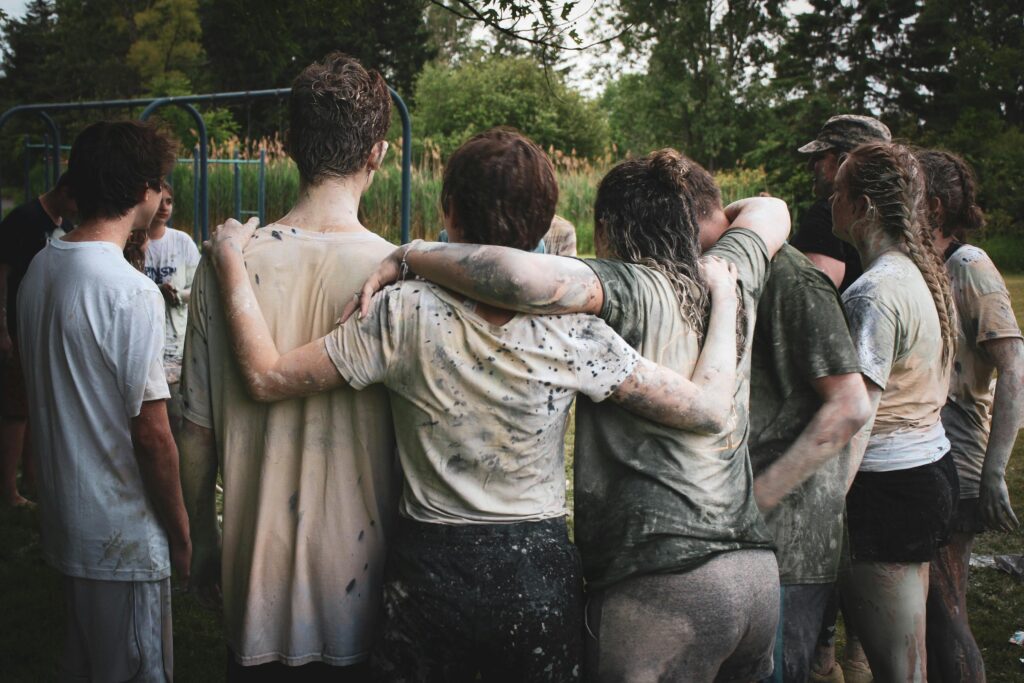Last updated on August 4th, 2024 at 05:50 pm

As parents, educators, and mental health professionals, understanding the emotional and psychological well-being of our teens is paramount. Adolescents today face numerous and complex challenges, from academic pressures to the pervasive influence of social media. This has led to a significant rise in mental health concerns among this age group.
Mindfulness, an ancient practice, has proven effective in addressing these challenges. This guide explores why mindfulness is vital for teen mental health and how to integrate it into their daily lives.
| What is Mindfulness? Mindfulness involves being fully present and engaged in the current moment. It involves paying attention to thoughts, feelings, and sensations without trying to change them. This practice can be incorporated into daily activities or through formal meditation. Originating from ancient meditation practices, especially Buddhism, mindfulness has been adapted into modern therapeutic techniques. It has evolved into therapeutic techniques like Mindfulness-Based Stress Reduction (MBSR) in modern psychology. |
The Mental Health Crisis Among Teens
Teen mental health has become a significant concern, with rising rates of anxiety and depression. The pressure to succeed academically, maintain social relationships, and navigate a rapidly changing world contributes to high stress levels among teenagers. Social media plays a dual role in teen mental health.
While it can foster connections, it also contributes to feelings of inadequacy and anxiety. Continuous exposure to idealized images and lifestyles can foster comparison and self-doubt.
The Role of Parents and Educators
Parents and educators play a crucial role in supporting teens’ mindfulness practices. Offering resources, demonstrating mindfulness, and creating opportunities for practice can help teens adopt mindfulness.
Open conversations about mental health and mindfulness can reduce stigma and encourage teens to seek help when needed. Creating a safe space for dialogue allows teens to express their feelings and experiences.
Mindfulness training can equip educators to better support their students. Understanding the principles and practices of mindfulness enables teachers to integrate it into their teaching methods and create a more mindful classroom environment.
How Mindfulness Helps Teens:
Reducing Stress and Anxiety
Mindfulness helps reduce stress and anxiety by teaching teens to focus on the present moment rather than worrying about the future or ruminating on the past. Techniques like deep breathing and guided imagery can soothe the mind and body.
In New York, where high-stress environments impact mental health, effective stress management and rehabilitation programs are crucial. According to a report by the New York State Health Foundation, nearly one in five adults in the state experienced symptoms of a mental health condition in 2019.
To address these challenges, facilities like the New York Center for Rehabilitation offer comprehensive services that combine with traditional therapy approaches, providing individuals with the tools to manage stress, anxiety, and related conditions effectively.
Improving Focus and Academic Performance
Practicing mindfulness can enhance concentration and cognitive function. Training the brain to focus on the present task helps teens improve academic performance and reduce mental clutter from multitasking.
Enhancing Emotional Regulation
Mindfulness helps teens recognize and manage their emotions. Observing their thoughts and feelings without judgment allows teens to develop healthier responses to emotional triggers and reduce impulsivity.

Practical Mindfulness Techniques for Teens
Mindful Breathing
Mindful breathing involves paying attention to the breath as it moves in and out of the body. This straightforward technique can be practiced anywhere, anchoring the mind in the present moment.
Body Scan Meditation
Body scan meditation involves focusing attention on different parts of the body, from the toes to the head. This practice can help teens become more aware of physical sensations and release tension.
Mindful Walking
Mindful walking encourages teens to focus on sensations like the ground under their feet and the movement of their legs. This practice can be particularly grounding and calming.
Journaling
Encouraging teens to keep a mindfulness journal helps them reflect on their thoughts and feelings. Writing about their experiences enhances self-awareness and emotional processing.
Integrating Mindfulness into Daily Life
Mindfulness in the Classroom
Schools can incorporate mindfulness practices into their daily routine. Brief mindfulness exercises at the start of the day or before tests can help students feel centered and ready to learn.
Family Mindfulness Practices
Families can practice mindfulness together, fostering a supportive environment for teens. Activities like mindful eating, where family members focus on the taste and texture of their food, can foster a sense of connection and calm.
Digital Detox
Encouraging digital detoxes, where teens take regular breaks from screens, can mitigate social media’s negative impact on mental health. Mindfulness can fill this space, helping teens reconnect with themselves and their environment.
The Science Behind Mindfulness
Research shows that mindfulness practices can change the brain’s structure and function. Neuroplasticity, the brain’s capacity to reorganize itself, enables mindfulness to enhance attention, emotion regulation, and self-awareness.
Mindfulness has been found to reduce the activity of the amygdala, the brain’s fear center, and increase the activity of the prefrontal cortex, which is responsible for executive functions. This shift helps teens manage stress more effectively.
Many studies have demonstrated the benefits of mindfulness for teens. A study published in the journal Mindfulness found that mindfulness training significantly reduced anxiety and depression symptoms in adolescents.
Challenges and Misconceptions
Some people believe mindfulness is about emptying the mind or achieving a state of constant calm. In reality, mindfulness involves accepting whatever arises in the present moment without judgment.
Teens may struggle to practice mindfulness consistently due to busy schedules or lack of interest. It’s important to introduce mindfulness in a way that feels accessible and relevant to their lives.
To overcome barriers, mindfulness can be presented as a flexible practice that can be integrated into daily activities. Short, simple exercises are often more appealing and manageable for teens.
Conclusion
As teens navigate the complexities of modern adolescence, mindfulness stands out as a vital tool for their mental health. Its ability to improve emotional regulation, decrease stress, and enhance focus is more relevant today than ever. Creating a mindful environment at home and in schools helps teens build the emotional intelligence and resilience they need to thrive.
Adopting mindfulness not only addresses mental health challenges but also helps teens live more aware and fulfilling lives. This approach meets the needs of parents, teachers, and mental health professionals committed to teenagers’ well-being, offering practical guidance.
Key Takeaways
- Mindfulness helps teens manage their emotions more effectively by teaching them to observe their feelings without immediate reaction, reducing impulsivity, and fostering better decision-making.
- Regular mindfulness practices activate the body’s natural relaxation response, helping to alleviate stress and anxiety which are prevalent in teenagers.
- By training the mind to focus on the present, mindfulness can improve teens’ concentration levels, which is beneficial for their academic performance and overall cognitive development.
- Mindfulness can be tailored to each teenager’s unique preferences and needs, making it a flexible tool for addressing individual mental health concerns.
- Creating a supportive environment in both educational institutions and at home is essential for encouraging teens to engage in mindfulness practices.
Frequently Asked Questions
Are there simple mindfulness exercises that my teen can start with?
Yes, techniques like guided meditations, mindful breathing, and body scans are great starting points and can be practiced for just a few minutes daily.
Can mindfulness improve academic performance?
Absolutely. Mindfulness enhances concentration and focus, leading to better academic performance by helping teens manage distractions.
How can I integrate mindfulness into my teen’s daily routine?
Schools can incorporate mindfulness programs into their curriculum, and parents can foster a mindful environment at home by setting aside time for practices like meditation.
What if my teen is skeptical about trying mindfulness?
Address skepticism by educating them about the benefits and scientific support for mindfulness, and encourage incremental trials to experience its benefits firsthand.






